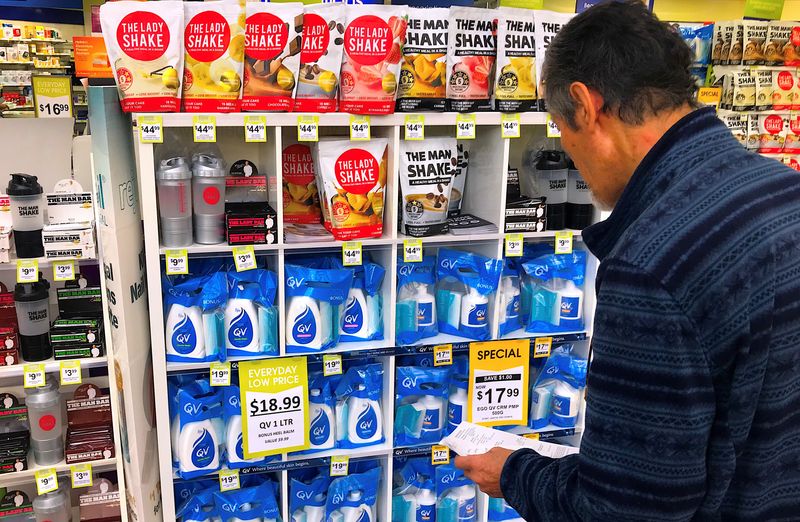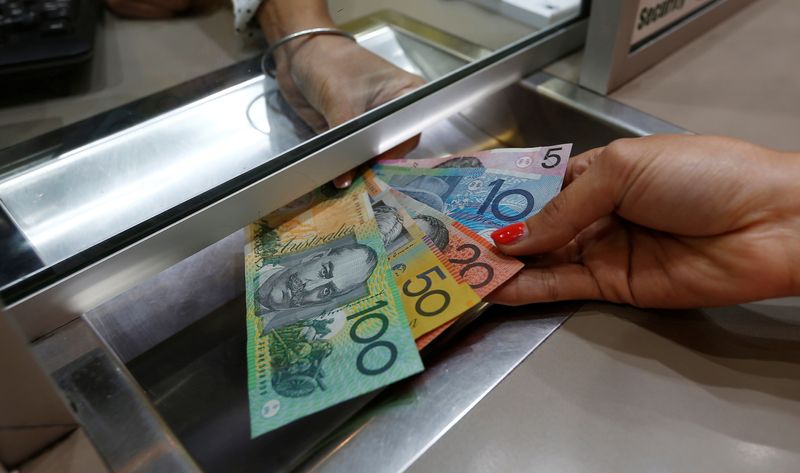By Wayne Cole
SYDNEY (Reuters) -Australian inflation sped to a 21-year high last quarter and is likely to accelerate even further as food and energy costs explode, stoking speculation interest rates will need to more than double to bring the outbreak under control.
Wednesday's gloomy report comes just a day before Treasurer Jim Chalmers is due to update the previous government's budget forecasts, and he is already warning that inflation would get worse before it got better.
"It will be confronting," Chalmers told reporters on the update. "Inflation revised up substantially, growth revised down, and all of the implications that brings."
Data from the Australian Bureau of Statistics showed the consumer price index (CPI) jumped 1.8% in the June quarter, just short of market forecasts of 1.9%.
The annual rate picked up to 6.1% from 5.1%, the highest since 2001 and more than twice the pace of wage growth.
A closely watched measure of core inflation, the trimmed mean, rose 1.5% in the quarter, lifting the annual pace to the highest since the series began in 2003 at 4.9%.
That took core inflation further away from the Reserve Bank of Australia's (RBA) 2-3% target band and cemented expectations it would hike the 1.35% cash rate by 50 basis points at a policy meeting on Aug. 2.
Markets are leaning against an RBA move of 75 basis points, though the U.S. Federal Reserve is expected to hike by a similar amount later on Wednesday.
The RBA, like many central banks, was wrongfooted by the rapid pick up in inflation and has already had to raise rates three times, the most aggressive tightening in decades.
A NARROW PATH
That is one reason Australia's recently elected Labor government has launched an independent review of the RBA to see if its policies and governance needed updating.
RBA Governor Philip Lowe has indicated rates will likely keep rising toward a "neutral" level of at least 2.5%, while markets have priced in as much as 3.75%.
"The challenge now is calibrating the amount of tightening that will be needed," said Paul Bloxham, head of Australian economics at HSBC, noting "neutral" was a moving target and tough to hit in practice.
"Going too hard from here may deliver a recession - too little, a persistent inflation problem," he warned. "A narrow pathway indeed."
The challenge is all the greater as much of the inflation pulse is global and beyond the RBA's control. The CPI measure of petrol prices hit a record peak for the fourth straight quarter, while supply chain problems and rising shipping costs saw goods inflation reach the highest since 1987.
While petrol has eased in recent weeks, market disruptions are boosting the cost of electricity and gas, while widespread flooding has lifted prices for fresh food.
As a result, analysts fear CPI inflation could well top 7%, or even 8%, by the end of the year and risk becoming embedded in wage and price expectations.

Alarmingly, an ANZ survey out this week showed consumers now expected inflation to run at 6% over the next two years.
Market measures of future inflation are more contained, with bond yields clearly signaling an economic slowdown ahead but, as yet, no recession.
